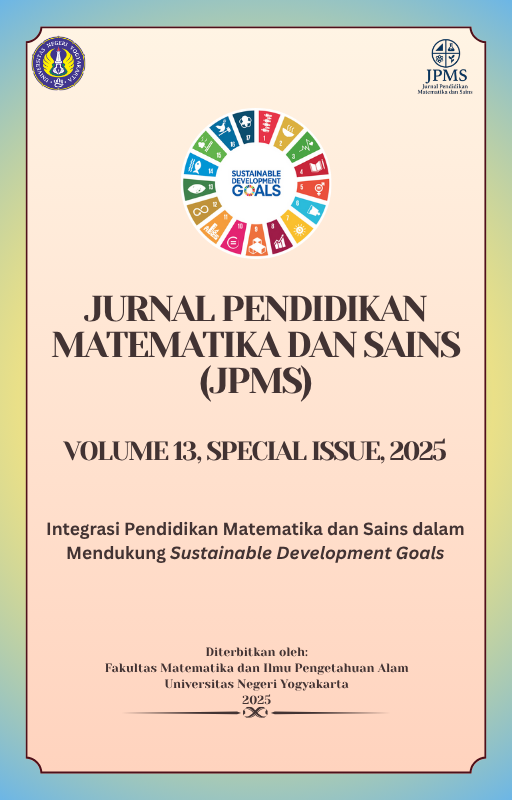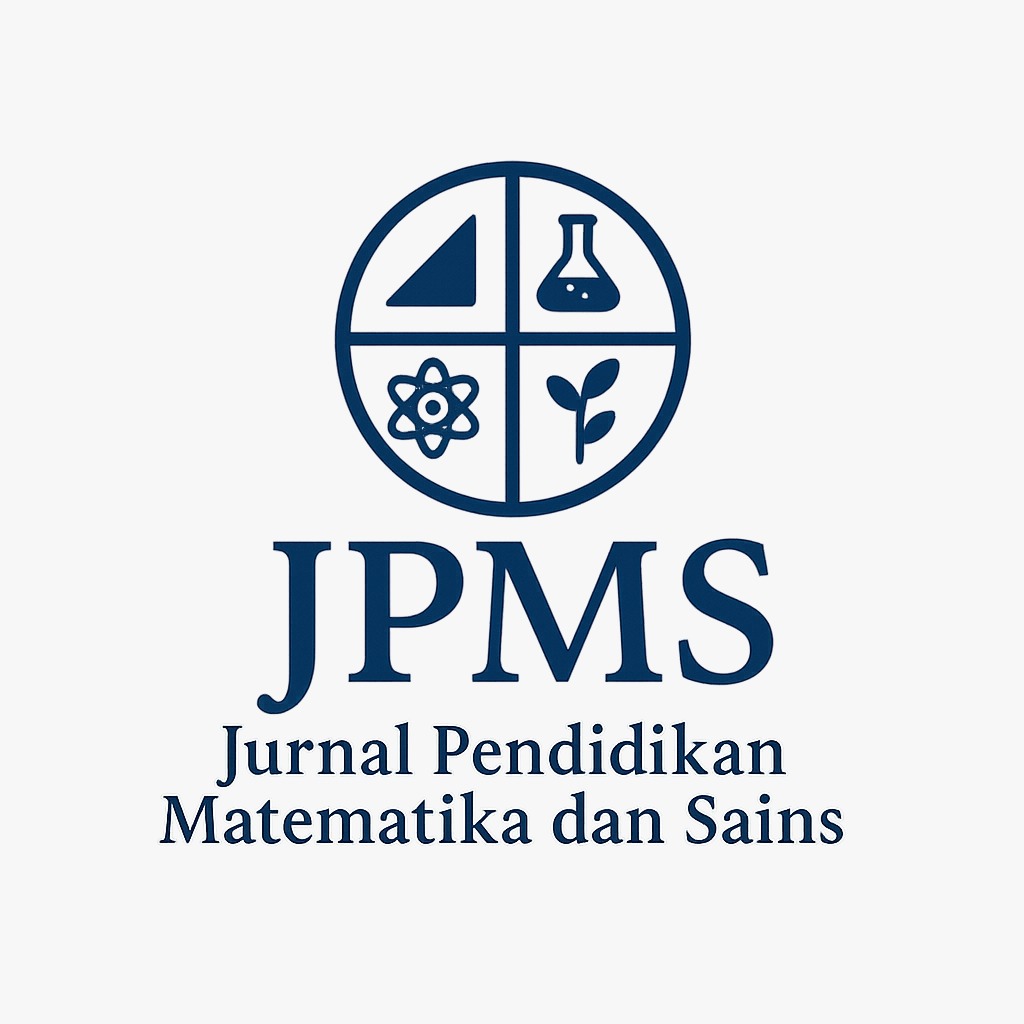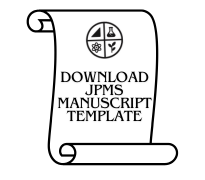Penerapan Problem-based Learning terhadap Kemampuan Berpikir Kritis dan Keaktifan Belajar Peserta Didik
DOI:
https://doi.org/10.21831/jpms.v13iSpecial_issue.89598Keywords:
Keaktifan belajar, Kemampuan berpikir kritis, Problem-based learningAbstract
Penelitian ini bertujuan untuk mengetahui perbedaan kemampuan berpikir kritis dan keaktifan belajar peserta didik dengan model Problem-based Learning (PBL) dan peserta didik dengan pendekatan Saintifik. Jenis penelitian ini adalah quasi experiment dengan desain pretest-posttest control group. Jumlah sampel dalam penelitian ini yaitu 74 peserta didik yang dipilih menggunakan teknik random sampling. Sampel terdiri dari 37 peserta didik untuk kelompok eksperimen dan 37 peserta didik untuk kelompok kontrol. Data diperoleh melalui tes kemampuan berpikir kritis, observasi keaktifan belajar, penilaian keaktifan belajar oleh teman kelompok. Analisis data menggunakan uji statistika MANOVA dan analisis statistika deskriptif. Hasil penelitian menunjukkan bahwa ada perbedaan yang signifikan kemampuan berpikir kritis dan keaktifan belajar peserta didik yang mengikuti pembelajaran model PBL dan peserta didik yang mengikuti pembelajaran dengan pendekatan Saintifik pada materi laju reaksi.Persentase sumbangan efektif model PBL terhadap kemampuan berpikir kritis sebesar 28,5% termasuk kategori sedang, dan persentase sumbangan efektif model PBL terhadap keaktifan belajar peserta didik sebesar 23,7% termasuk kategori sedang.
References
Abanikannda, M. O. (2016). Influence of problem-based learning in chemistry on academic achievement of high school students in osun state, Nigeria. International Journal of Education, Learning and Development, 4(3), 55-63. Retrieved from https://www.researchgate.net/Problem-Based-Learning-in-Chemistry-on-Academic-Achievement-of-High-SchoolStudents-in-Osun-State-Nigeria.pdf
Agustina, Wahyu & Muhtar. (2013). Penerapan Model Pembelajaran Kooperatif Tipe TGT Untuk Meningkatkan Prestasi Belajar. Jurnal Pendidikan UNS. 1(2): 100-108. Retrieved from https://jurnal.fkip.uns.ac.id/index.php/ekonomi/article/view/2496
Aidoo, B., Boateng, S. K., Kissi, P. S., & Ofori, I. (2016). Effect of Problem-Based Learning on Students' Achievement in Chemistry. Journal of Education and Practice, 7(33), 103-108.
Argaw, A. S., Haile, B. B., Ayalew, B. T., & Kuma, S. G. (2016). The Effect of Problem Based Learning (PBL) Instruction on Students’ Motivation and Problem Solving Skills of Physics. EURASIA Journal of Mathematics, Science and Technology Education, 13(3). https://doi.org/10.12973/eurasia.2017.00647a
Baran, M., & Sozbilir, M. (2017). An Application of Context- and Problem-Based Learning (C-PBL) into Teaching Thermodynamics. Research in Science Education, 48(4), 663-689. https://doi.org/10.1007/s11165-016-9583-1
Cahyani, H. D., Hadiyanti, A. H. D., & Saptoro, A. (2021). Peningkatan Sikap Kedisiplinan dan Kemampuan Berpikir Kritis Siswa dengan Penerapan Model Pembelajaran Problem Based Learning. EDUKATIF : JURNAL ILMU PENDIDIKAN, 3(3), 919-927. https://doi.org/10.31004/edukatif.v3i3.472
Changwong, K., Sukkamart, A., & Sisan, B. (2018). Critical thinking skill development: Analysis of a new learning management model for Thai high schools. Journal of International Studies, 11(2), 37-48. https://doi.org/10.14254/2071-8330.2018/11-2/3
Danczak, S. M., Thompson, C. D., & Overton, T. L. (2017). ‘What does the term Critical Thinking mean to you?’ A qualitative analysis of chemistry undergraduate, teaching staff and employers. Chemistry Education Research and Practice, 18(3), 420-434. https://doi.org/10.1039/c6rp00249h
Djamarah, S,B. (2011). Psikologi belajar: Penerbit Rineka Cipta.
Endriani, R., Sundaryono, A., & Elvia, R. (2018). Pengembangan media pembelajaran kimia menggunakan video untuk mengukur kemampuan berfikir kritis siswa. PENDIPA Journal of Science Education, 2(2). https://doi.org/10.33369/pendipa.v2i2.4662
Ennis, R. H. (2011). The Nature of Critical Thinking: An Outline of Critical Thinking Dispositions and Abilities. Inquiry: Critical Thinking Across the Disciplines, 26(2), 4–4. https://doi.org/10.5840/inquiryctnews201126214
Facione, P. A. (2000). The disposition toward critical thinking: Its character, measurement, and relationship to critical thinking skill. Informal Logic, 20(1). https://doi.org/10.22329/il.v20i1.2254.
Farib, P. M., Ikhsan, M., & Subianto, M. (2019). Proses berpikir kritis matematis siswa sekolah menengah pertama melalui discovery learning. Jurnal Riset Pendidikan Matematika, 6(1), 99-117. https://doi.org/10.21831/jrpm.v6i1.21396
Fitriani, F., Nurhuda, N., & Ina, A. I. (2021). Improving students’ activeness and critical thinking skills through problem based learning. Journal of Science and Education (JSE), 2(1), 19-29. https://doi.org/10.56003/jse.v2i1.60
Günter, T., & Alpat, S. K. (2017). The Effects of Problem-Based Learning (PBL) on the Academic Achievement of Students Studying “Electrochemistry”. Chemistry Education Research and Practice, 18, 78-98.
https://doi.org/10.1039/C6RP00176A
Handayanti, Y., Setiabudi, A., & Nahadi, N. (2015). Analisis profil model mental siswa sma pada materi laju reaksi. Jurnal Penelitian dan Pembelajaran IPA, 1(1), 107. https://doi.org/10.30870/jppi.v1i1.329
Khoirunnisa, F., & Sabekti, A. W. (2020). Profil keterampilan berpikir kritis siswa pada materi ikatan kimia. Jurnal Pendidikan Kimia Indonesia, 4(1), 26-31. Retrieved from https://ejournal.undiksha.ac.id/index.php/JPK/article/view/25635
Liliyana, R., Ayatusa'adah, A., & Nirmalasari, R. (2021). Penerapan Model Problem Based Learning secara Daring terhadap Keaktifan dan Prestasi Belajar Biologi Peserta Didik. Journal of Biology, 3(1), 18-24. https://doi.org/10.32585/jbl.v3i1.1335
Lismaya, L. (2019). Improving students’ interpersonal intelligence through outdoor activities in learning plant morphology : a quasi experiment. Unnes Science Education Journal, 8(2). https://doi.org/10.15294/usej.v8i2.34212
Mergendoller, J. R. , Maxwell, N. L. , & Bellisimo, Y. (2006). The Effectiveness of Problem-Based Instruction: A Comparative Study of Instructional Methods and Student Characteristics. Interdisciplinary Journal of Problem-Based Learning, 1(2) https://doi.org/10.7771/1541-5015.1026
Muntari, M., Al Idrus, S. W., & Supriadi, S. (2021). Pendampingan implementasi pembelajaran guided discovery melalui lesson study for learning ommunity (LSLC) untuk peningkatan kemampuan berpikir kritis kimia siswa SMA zonasi Narmada kabupaten Lombok Barat. Jurnal Pengabdian Magister Pendidikan IPA, 4(1). https://doi.org/10.29303/jpmpi.v4i1.603
Murdock, M. C., & Keller-Mathers, S. (2008). Teaching and learning creatively with the Torrance Incubation Model: A research and practice update. The international journal of creativity & problem solving, 18(2), 11-33. Retrieved from https://www.dbpia.co.kr/Journal
Overton, T. L., and C. A. Randles. 2015. “Beyond Problem-Based Learning: Using Dynamic PBL in Chemistry.” Chemistry Education Research and Practice 16: 251–259. doi:10.1039/C4RP00248B
Priyani, Y., Tri Martuti, N. K., & Rudyatmi, E. (2019). Penerapan problem based learning berpendekatan saintifik dalam meningkatkan kemampuan berpikir kreatif siswa materi perubahan lingkungan. Bioma : Jurnal Ilmiah Biologi, 8(1), 337-350. https://doi.org/10.26877/bioma.v8i1.4698
Ronis, D. L. (2008). Problem-based learning for math and science: Integrating inquiry and the Internet (2nd Ed). California: Corwin Press
Safitri, D. N. I. L., & Setiyawati, E. (2023). The Effect of the Problem-Based Learning Model on Student Activeness in Science Learning. Edunesia: Jurnal Ilmiah Pendidikan, 4(3), 1122-1135. https://doi.org/10.51276/edu.v4i3.528
Sardiman. (2008). Interaksi dan Motivasi Belajar Mengajar. Jakarta: Raja Grafindo Persada.
Strauss, D. (2016). How critical is “critical thinking”? South African Journal of Philosophy, 35(3), 261-271. https://doi.org/10.1080/02580136.2016.1191853
Sudjana, N. (1989). Dasar - dasar proses belajar mengajar. Bandung: Sinarbaru.
Watson, G., & Glaser, E. M. (2010). Watson-GlaserTM II Critical Thinking Apparsial. Technical Manual and User’s Guide. Retrived from https://talentlens.in/wpcontent/uploads/2017/07/WG2_TechMan_v2_r4.pdf
Wibowo, N. (2016). Upaya peningkatan keaktifan siswa melalui pembelajaran berdasarkan gaya belajar di SMK Negeri 1 Saptosari. Elinvo (Electronics, Informatics, and Vocational Education), 1(2), 128-139.
Zakiah, L., & Lestari, I. (2019). Berpikir kritis dalam konteks pembelajaran. Bogor. Erzatama Karya Abadi.
Downloads
Published
How to Cite
Issue
Section
Citation Check
License

This work is licensed under a Creative Commons Attribution-ShareAlike 4.0 International License.
Jurnal Pendidikan Matematika dan Sains allows readers to read, download, copy, distribute, print, search, or link to its articles' full texts and allows readers to use them for any other lawful purpose. The journal allows the author(s) to hold the copyright without restrictions. Finally, the journal allows the author(s) to retain publishing rights without restrictions
- Authors are allowed to archive their submitted article in an open access repository
- Authors are allowed to archive the final published article in an open access repository with an acknowledgment of its initial publication in this journal

This work is licensed under a Creative Commons Attribution-ShareAlike 4.0 Generic License.





